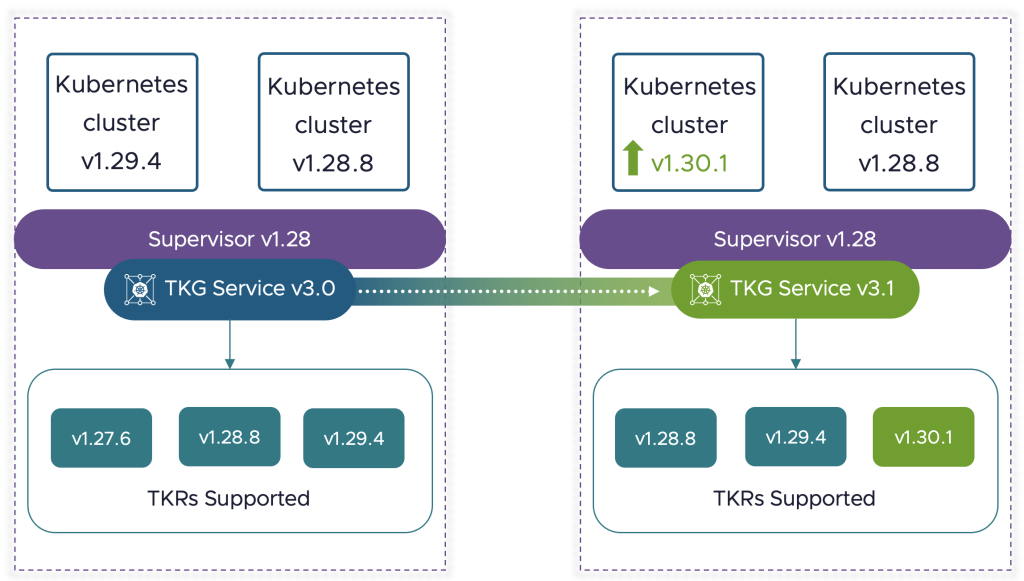The Tanzu Kubernetes Grid Service (TKG Service) enables enterprises to securely provision and manage Certified Kubernetes on VMware vSphere. Tanzu Kubernetes Grid Service is a set of controllers and custom resources deployed in VMware Cloud Foundation (VCF) and VMware vSphere Foundation to manage the lifecycle of Kubernetes workload clusters. Our 3.1 Kubernetes service release makes major improvements to the platform.
Upgrade Kubernetes without upgrading vCenter

We are delighted to announce that starting with vSphere 8.0 Update 3, the lifecycle of Tanzu Kubernetes Grid Service components can be decoupled from vCenter. In the past, updates for the Kubernetes Service were bundled with vCenter releases requiring a vCenter upgrade to make new Kubernetes minor releases available. Now, administrators can choose to make a new version of TKG Service available immediately by directly updating the TKG Service or they can continue to apply these changes as a part of general vCenter patches. For platform administrators, this enables a path to the most recent version of the TKG service and our latest improvements outside of the normal vCenter patching process. You can read more about this in the TKG Service Documentation.
Keeping pace with new releases of Kubernetes
The decoupled TKG Service architecture supporting Kubernetes 1.29 was first announced and distributed as part of the vSphere 8.0 Update 3. Now, the first independent release of the TKG Service, version 3.1, brings support for Kubernetes 1.30 to our platform.
We want platform users to have access to the most recently available versions of Kubernetes possible. In the last three months, we’ve shipped four minor versions of Kubernetes on vSphere 8 — and with support for 1.30, we now support the most recent minor version. This new focus on release cadence and our ability to introduce new Kubernetes capabilities without requiring a vCenter update will be instrumental in ensuring that vSphere remains a great home for your enterprise workloads.
Discover more from VMware Cloud Foundation (VCF) Blog
Subscribe to get the latest posts sent to your email.




